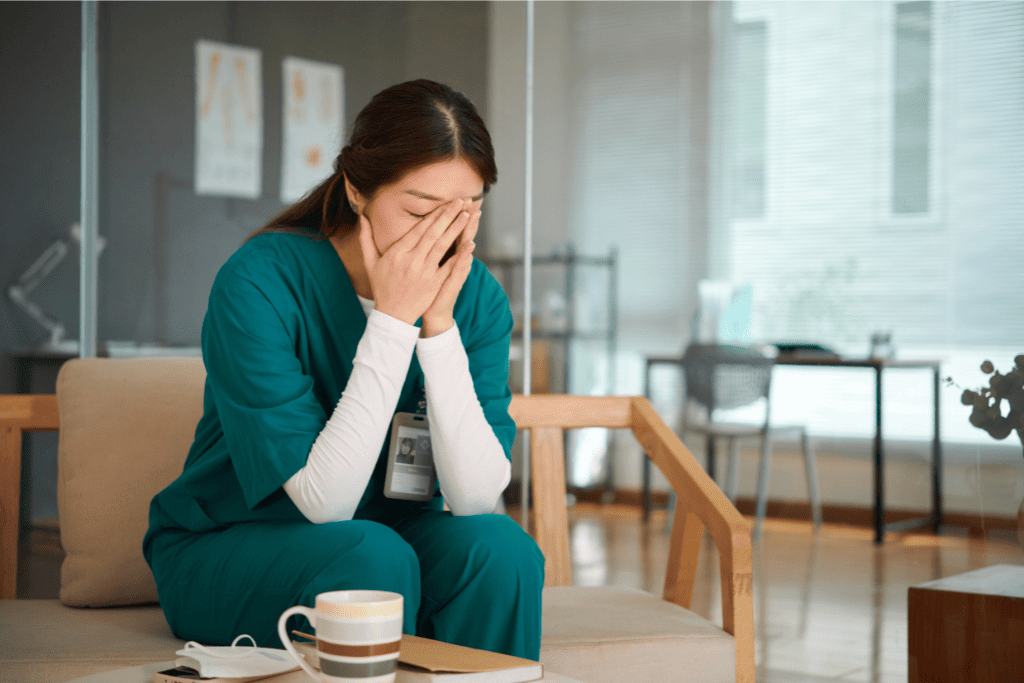If you are an adult struggling with OCD symptoms, seeking specialized psychiatric care is an important step toward reclaiming your life. Untreated, OCD can erode your quality of life, impact your relationships, and severely limit your potential. The goal of professional treatment is to break the cycle of obsessions and compulsions, providing a structured, evidence-based pathway to symptom relief, resilience, and long-term well-being. This guide will help patients and their families understand the professional treatment options available in Los Angeles today.
What Is OCD?
Obsessive-Compulsive Disorder is defined by the presence of two core components: obsessions and compulsions.
Obsessions are recurrent and persistent thoughts, urges, or images that are experienced as intrusive, unwanted, and cause marked anxiety or distress. Common obsessions in adults include:
- Fears of contamination or germs.
- Intrusive sexual or aggressive thoughts.
- Perfectionism and fear of making a mistake.
- Excessive concern with religious or moral issues (scrupulosity).
Compulsions are repetitive behaviors or mental acts that the person feels driven to perform in response to an obsession, or according to rigid rules. They are aimed at reducing the anxiety caused by the obsession or preventing a feared event. Common compulsions include:
- Excessive checking (locks, stove, or security).
- Repetitive cleaning, washing, or decontaminating.
- Ordering and arranging things in a specific, rigid way.
- Mental rituals, such as praying, counting, or silently repeating phrases to "undo" a bad thought.
- Reassurance-seeking from others to temporarily relieve doubt.
OCD’s impact on daily life can be devastating. Compulsions can consume hours each day, leading to missed work, school failure, and social isolation. The constant distress and shame often strain personal relationships, turning what should be a haven into a battlefield against the mind.
Why Professional Psychiatric Treatment Matters
When dealing with a complex condition like OCD, the path to recovery requires specialized, expert guidance. While self-help resources and general counseling can be beneficial, they are typically not sufficient to fully manage OCD, especially when symptoms are moderate to severe.
Psychiatric care offers a comprehensive approach that extends beyond traditional talk therapy. It includes an expert diagnosis, medication management, and the integration of advanced therapies.
The risks of untreated or mismanaged OCD are significant. Symptoms tend to worsen over time, resulting in increased functional impairment. Furthermore, OCD rarely travels alone; it is frequently accompanied by co-occurring conditions like Major Depressive Disorder, Generalized Anxiety Disorder, and Substance Use/Addiction, which a psychiatrist is uniquely trained to diagnose and treat simultaneously.
The benefits of a structured, evidence-based psychiatric plan are clear: a reduction in the frequency and intensity of obsessions and compulsions, an improved ability to function at work and in relationships, and a greater sense of control over one’s own life.
Also Read: When to Seek Psychiatric Help for Your Child: Warning Signs and Next Steps
Psychiatric Evaluation for OCD in Adults
The first step in effective treatment is a thorough diagnostic process. During an initial psychiatric assessment, you can expect a comprehensive and confidential conversation that builds a detailed picture of your mental health.
The psychiatrist will conduct an in-depth review of your symptoms, including the specific content of your obsessions, the nature and frequency of your compulsions, and how long these symptoms have been present. They will also review your medical, psychological, and family history to understand potential genetic factors, co-occurring conditions, and any prior attempts at treatment.
An important part of this evaluation is the “rule-out” process, which involves differentiating OCD from other conditions that may have overlapping features. This includes distinguishing compulsive rituals from excessive generalized worry, differentiating hoarding from personality traits, or ensuring symptoms aren't better explained by other anxiety disorders. An expert evaluation ensures that the treatment plan is precisely tailored to the specific mechanisms of your OCD.
Evidence-Based Treatment Options
Effective psychiatric treatment in Los Angeles for adult OCD almost always involves a combination of medication, psychotherapy, and, in some cases, advanced interventions.
Medication Management
Medication plays a key role in reducing the severity and frequency of symptoms by targeting the underlying neurobiological imbalances associated with OCD.
The first-line treatment for OCD in Los Angeles is a class of medications called Selective Serotonin Reuptake Inhibitors (SSRIs). These drugs, such as fluoxetine, sertraline, fluvoxamine, and escitalopram, work by increasing the levels of serotonin in the brain. For OCD, SSRIs are often prescribed at higher doses and for longer periods than they are for depression.
Another effective option is Clomipramine, a tricyclic antidepressant that has powerful serotonin-blocking effects and is highly effective in treating OCD, often considered when SSRIs have not provided sufficient relief.
For cases of treatment-resistant OCD, when symptoms persist despite trials of two or more SSRIs, a psychiatrist may introduce augmentation strategies. This often involves adding a small dose of a second-generation antipsychotic medication (such as aripiprazole or risperidone) to the primary SSRI to enhance its effect.
Medication is generally a long-term management strategy for OCD, helping to maintain symptom reduction and prevent relapse.
Psychotherapy
While medication can turn down the volume on OCD symptoms, psychotherapy is essential for teaching you how to challenge and manage those symptoms directly.
The undisputed gold standard for OCD psychotherapy is Cognitive Behavioral Therapy (CBT) with Exposure and Response Prevention (ERP).
- Exposure involves facing the thoughts, images, objects, or situations that trigger obsessions.
- Response Prevention means consciously choosing not to engage in the compulsive behavior or ritual that you would normally perform to reduce the anxiety.
Over time and with a therapist’s guidance, ERP helps the brain learn that the feared outcome doesn’t occur and that the anxiety naturally subsides without needing the compulsion, a process called habituation.
Another beneficial approach is Acceptance and Commitment Therapy (ACT), which focuses on learning to accept intrusive thoughts without judgment and choosing to commit to behaviors that align with your values, rather than continually fighting the thoughts through compulsions.
For many adults, the combination of medication and specialized therapy (like ERP) works best, leveraging the brain chemistry changes from medication with the powerful behavioral changes learned in therapy.
Advanced / Interventional Options
For a small percentage of patients whose OCD is severely debilitating and has not responded to multiple trials of medication and ERP, advanced neuromodulation treatments may be considered.
Transcranial Magnetic Stimulation (TMS) is a non-invasive procedure that uses magnetic fields to stimulate nerve cells in the brain, often targeting the specific circuits involved in OCD. It is FDA-approved for treatment-resistant OCD and is a non-surgical option with generally mild side effects.
In rare, extremely severe, and refractory cases, a neurosurgical procedure like Deep Brain Stimulation (DBS) may be considered. DBS involves implanting electrodes in specific brain areas to regulate abnormal impulses. Advanced treatments in Los Angeles may be considered after rigorous diagnostic and therapeutic criteria have been met.
Also Read: Common Mental Health Conditions in Adults – Marc A. Heiser, MD, PhD
The Role of Lifestyle and Support in OCD Management
Treatment extends beyond the doctor’s office. Incorporating healthy lifestyle changes and a strong support network can significantly enhance the efficacy of psychiatric treatment in Los Angeles.
- Stress Management and Mindfulness: Chronic stress is a common trigger for OCD flares. Techniques like mindfulness meditation, deep breathing exercises, and yoga can help adults tolerate anxiety without resorting to compulsions.
- Sleep, Exercise, and Diet: Prioritizing quality sleep, regular aerobic exercise, and a balanced diet are supportive strategies that improve overall mood, reduce anxiety, and enhance the brain’s ability to respond to treatment.
- Family Education: Loved ones should be educated about OCD and how they can support it without inadvertently reinforcing compulsions. For example, providing constant reassurance is a form of compulsion; instead, family members can be coached on how to validate the distress while redirecting the individual toward coping skills learned in therapy.
- Support Groups and Community Resources: Connecting with others who understand the daily struggle of OCD through local or online support groups can reduce feelings of isolation and provide practical coping strategies.
Living with OCD: Long-Term Outlook
It’s vital for adults with OCD to understand this as a chronic but manageable condition. Like other chronic illnesses, it requires ongoing management, but this doesn’t mean a life dominated by symptoms. The goal isn’t necessarily to eliminate every single intrusive thought, but to reduce the power they hold over your actions and life.
Tracking progress is an essential tool, allowing the psychiatric team to adjust treatment plans, whether it’s fine-tuning medication dosages or shifting therapy approaches, to maintain stability. Relapse prevention strategies are built into the long-term plan, teaching patients to recognize early warning signs of worsening symptoms and implementing quick, practiced responses.
Recovery is absolutely possible with the right support. By engaging in evidence-based care and committing to the process, adults with OCD can achieve profound relief and live full, meaningful lives that are defined by their values, not their fears.
Conclusion
If you are an adult struggling under the weight of repetitive thoughts and rituals, please know that psychiatric treatment for OCD is highly effective when it involves a proper, scientifically driven evaluation and personalized care plan. Delaying treatment only allows the disorder to cement its patterns. Taking the first step to seek help is a courageous act of self-care.
To begin your journey toward relief and stability, consider consulting with a specialist. Marc Heiser, M.D., Ph.D., in Los Angeles is an ABPN-certified child, adolescent, and adult psychiatrist who specializes in providing scientifically driven assessments and comprehensive treatment, including medication management and advanced options like TMS, for patients with OCD and other complex mental health symptoms. Contact us today!




.jpg)